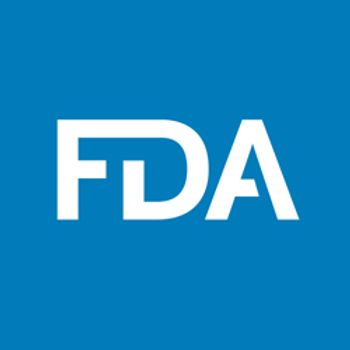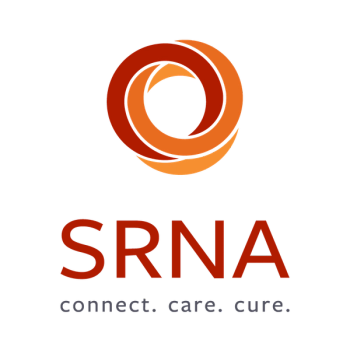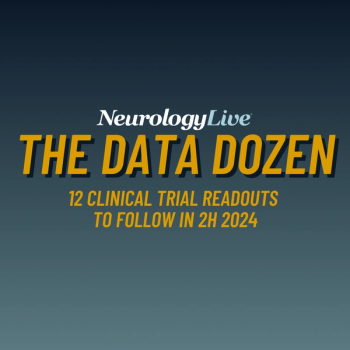
The drug showed a strong safety profile and met primary endpoints, showing efficacy in slowing clinical and biological decline and supporting further investigation in a phase 2/3 trial.

Marco Meglio, Assistant Managing Editor for NeurologyLive, has been with the team since October 2019. Follow him on Twitter @marcomeglio1 or email him at [email protected]

The drug showed a strong safety profile and met primary endpoints, showing efficacy in slowing clinical and biological decline and supporting further investigation in a phase 2/3 trial.

Marketed as Zunveyl for mild-to-moderate Alzheimer disease, ALPHA-1062 is considered a new-generation acetylcholinesterase inhibitor with expected minimal gastrointestinal adverse events.

The vaccine induced a specific humoral immune response, positively affecting several AD-related biomarkers, and showed potential as a treatment for AD, with further trials planned.

Test your neurology knowledge with NeurologyLive®'s weekly quiz series, featuring questions on a variety of clinical and historical neurology topics. This week's topic is on congenital muscular dystrophy.

Lantheus's acquisition of NAV-4694 aims to enhance early Alzheimer’s disease detection and complement their PET imaging tools, potentially improving diagnosis, staging, and treatment monitoring.

Across a 12-week study, atogepant-treated patients, with and without acute medication overuse, had greater reductions in mean monthly migraine days, monthly headache days, and acute medication use days.

Mind Moments®, a podcast from NeurologyLive®, brings you an exclusive interview with Douglas Wajda, PhD. [LISTEN TIME: 13 minutes]

Over a 48-week period, patients treated with low molecular weight dextran sulfate compound had minimal changes in ALS Functional Rating Scale and ALS Assessment Questionnaire.

The expanded indication, supported by a phase 2 open-label trial, includes children of all ages with CLN2 disease, regardless of whether they are symptomatic or asymptomatic.

With the approved IND, it expands research efforts of equecabtagene autoleucel from other autoimmune conditions like myasthenia gravis and NMOSD.

In a study with 147 participants, SAGE-324 did not show a statistically significant dose-response relationship or improvement compared to placebo in patients with essential tremor.

Investigators found that in melanomas in particular, interleukin-6 blockade seems to be effective in the management of immune-related adverse events from immune checkpoint inhibitors.

Treated patients demonstrated improvements on the Bayley-4 in cognition, communication, and motor function that exceeded those seen in natural history studies of Angelman syndrome.

Steve Hoffmann, MS, and Alessio Travaglia, PhD, provide commentary on a recently launched public-private partnership aimed at identifying biomarkers to better differentiate Parkinson disease from other related neurodegenerative disorders.

Antonella Favit-Van Pelt, MD, PhD, chief medical officer at Helius Medical Technologies, gave perspective on the clinical advantages of the company’s non-implantable device to treat gait in multiple sclerosis.

In the event that a patient inadvertently took a 0.25 mg dose rather than the intended 0.125 mg dose, they are advised to consult a physician.

LETM and AQP4-IgG seropositivity were strong predictors of spinal movement disorders, while MOG-IgG and African American race are protective factors.

The study highlights tocilizumab's potential benefits and safety, even during SARS-CoV-2 infection.

Across all studies, including 2 of the largest recorded for CIDP, patients unanimously demonstrated a preference for SCIG over IVIG.

Test your neurology knowledge with NeurologyLive®'s weekly quiz series, featuring questions on a variety of clinical and historical neurology topics. This week's topic is on progressive multiple sclerosis.

The investigational therapy, which targets neurodegeneration, has shown promise in phase 2 and 3 studies of Alzheimer disease and Parkinson disease, with additional studies on the way.

Benjamin Greenberg, MD, a pediatric neurologist at the University of Texas Southwestern Medical Center, provided commentary on a recently initiated online program dedicated to empowering those affected by rare neuroimmune disorders.

In new analyses of a pivotal phase 3 study, eplontersen resulted in beneficial effects on neuropathy impairment and quality of life in patients regardless of sex or change in body mass index.

LX2006 shows safety, tolerance, and significant improvements in cardiac biomarkers in FA cardiomyopathy, progressing to higher dose cohorts.

Take a look at some of the most-anticipated clinical trials with expected data readouts in the second half of 2024 that researchers and clinicians in neurology should keep an eye out on.

After 6 months of treatment, nearly half of the small-scale cohort demonstrated enhancements on the Unified MSA Rating Scale, an assessment of activities of daily living.

The neurologist and clerkship director at the University of Connecticut provided perspective on the developing role of clerkship directors and the value they provide to neurology departments.

Additional interim clinical study results comprising 6- and 12-months of treatment data on multiple patients, is expected to be readout in the first quarter of 2025.

David Cooper, MD, chief medical officer at AviadoBio, provided insight on a new study assessing AVB-101, an investigational gene therapy, as a potential treatment for patients with frontotemporal dementia.

Secondary symptoms of PD can be as debilitating as the primary motor symptoms, often leading to increased disability, reduced independence, and a higher burden on caregivers.